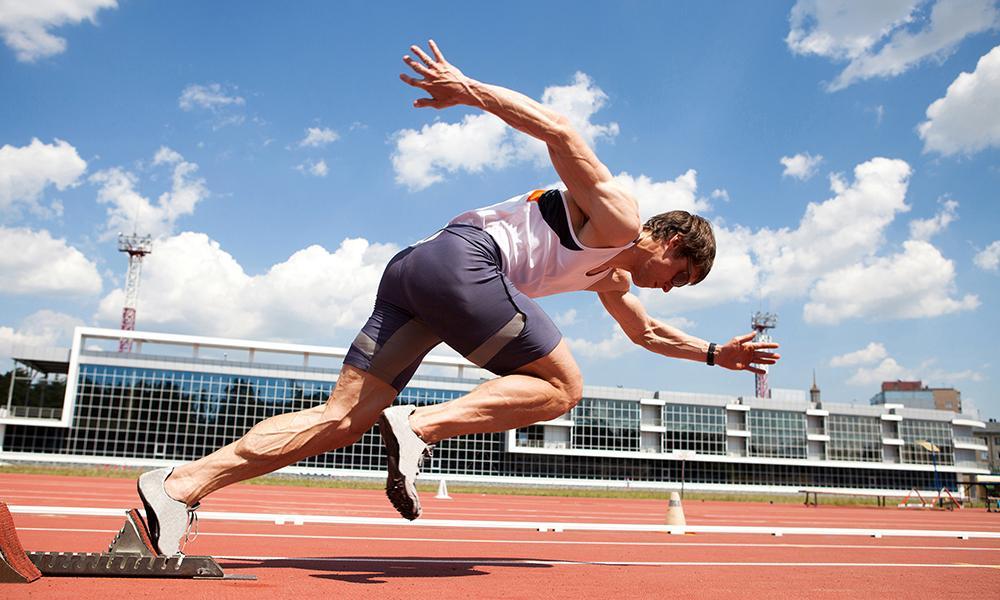There are a few key things that you can do to improve your performance in sports. First, make sure that you are physically fit and have the proper equipment. Second, practice regularly and perfect your technique. Third, focus on your mental game.Fourth, stay motivated and have fun.Physical fitness is important for any athlete. Make sure that you are in good shape by eating healthy and exercising regularly. Having the proper equipment is also important. Make sure that you have the right shoes, clothing, and gear for your sport.Practice makes perfect.
Introduction
When it comes to sports, there is no one size fits all approach to improving your performance. However, there are some key things that you can do to help you reach your potential. Here are some tips to help you improve your performance in sports:
1. Get enough sleep: Getting enough sleep is crucial for both your physical and mental health. It can help you recover from training sessions, and it can also improve your focus and concentration.
2. Eat a healthy diet: Eating a healthy diet will provide your body with the nutrients it needs to perform at its best. Make sure to include plenty of fruits, vegetables, and whole grains in your diet.
3. Stay hydrated: Drinking plenty of fluids is important for your overall health, and it can also help improve your performance in sports. Make sure to drink plenty of water throughout the day.
4. Train regularly: Training regularly is important for your physical and mental health. It can help improve your strength, endurance, and technique.
5. Take breaks: Taking breaks is important for your physical and mental health. Make sure to take breaks during training sessions and competitions.
6. Be positive: Being positive is important for your mental health. It can help you stay motivated and focused.
7. Set goals: Setting goals is important for your motivation. It can help you stay focused and strive to improve.
8. Practice visualization: Visualization is a powerful tool that can help improve your performance in sports. It involves picturing yourself achieving your goals.
9. Get a coach: A coach can help you improve your performance in sports. They can provide you with feedback, help you set goals, and give you advice.
10. Join a team: Joining a team can help improve your performance in sports. It can provide you with support and motivation, and it can also help you develop teamwork skills.
The importance of proper nutrition
Whether you’re a professional athlete or a weekend warrior, proper nutrition is essential to peak performance. What you eat (and when you eat it) can affect your energy levels, recovery time and overall health.
There are three main components to a balanced diet for athletes:
1. Carbohydrates
2. Protein
3. Fat
Each of these nutrients plays an important role in keeping your body healthy and performing at its best.
CARBOHYDRATES
Carbohydrates are the body’s main source of energy. They’re broken down into glucose, which is then used by your muscles for energy during exercise.
Complex carbohydrates, such as those found in whole grains, beans and vegetables, are digested more slowly than simple carbohydrates, such as those found in sugar and white flour. This slow digestion means that complex carbs provide a sustained energy supply, while simple carbs give you a quick burst of energy followed by a crash.
For this reason, complex carbs are the best choice for athletes. They’ll help you perform your best and recover quickly after exercise.
Good sources of complex carbs include:
-Whole grains
-Beans
-Vegetables
PROTEIN
Protein is essential for repairing and rebuilding muscle tissue. It’s also important for maintaining a healthy immune system.
Protein is made up of amino acids, which are the building blocks of muscle. There are 20 different amino acids, 9 of which the body cannot produce on its own and must get from food. These are known as essential amino acids.
Animal sources of protein, such as meat, poultry, fish and dairy, contain all of the essential amino acids. Plant sources of protein, such as grains, beans, nuts and seeds, usually lack one or more of the essential amino acids. However, you can get all of the essential amino acids by eating a variety of plant proteins throughout the day.
Good sources of protein include:
-Meat
-Poultry
-Fish
-Eggs
-Dairy
-Beans
-Nuts
The importance of proper training
A lot of people think that playing a sport is all about natural talent and that you don’t need to train to be good at it. However, this couldn’t be further from the truth. Sure, some people are born with a higher level of natural ability than others, but everyone still needs to put in the work to develop their skills.
One of the most important aspects of training is learning proper technique. This is especially important in sports like golf, tennis, and baseball, where one small mistake can make a big difference in your performance. By learning the correct way to swing a golf club or hit a tennis ball, you’ll be able to hit the ball further, straighter, and with more power.
In addition to learning proper technique, training also helps to improve your stamina and endurance. The better conditioned you are, the longer you’ll be able to play without getting tired. This is important not only for performance, but also for safety. If you get too tired, you’re more likely to make mistakes that could lead to injury.
Finally, training also helps to reduce the risk of injury. By strengthening the muscles and joints used in your sport, you’ll be less likely to suffer a serious injury. This is especially important for contact sports like football and hockey, where injuries are common.
So, if you’re serious about playing your sport, make sure to get the proper training. It’s the only way to ensure that you’re performing at your best and staying safe on the playing field.
The importance of mental preparation
Sports psychologists have long recognized the importance of mental preparation in achieving peak performance in sports. Mental preparation is a process that helps athletes to focus their attention and energy on the task at hand and to control their thoughts and emotions. It includes activities such as goal setting, imagery, self-talk, and relaxation.
Mental preparation can help athletes to improve their focus and concentration, to control their nerves and anxiety, and to perform at their best when it counts the most. Studies have shown that mental preparation can improve athletic performance by up to 25 percent.
The first step in mental preparation is to set realistic goals. Athletes need to identify what they want to achieve and to set specific, measurable, and achievable goals. They should also set a time frame for reaching their goals.
The second step is to use imagery to visualize oneself achieving the goal. Studies have shown that imagery can improve performance by up to 20 percent. Athletes need to be specific when they are visualizing and to use all of their senses to create a realistic image.
The third step is to use self-talk to control one’s thoughts and emotions. Positive self-talk can help athletes to focus on the task at hand and to believe in themselves. Negative self-talk can lead to doubt and anxiety.
The fourth step is to use relaxation techniques to control nerves and anxiety. Relaxation techniques such as deep breathing and progressive muscle relaxation can help athletes to feel calm and to focus on their performance.
Mental preparation is an important part of achieving peak performance in sports. It can help athletes to improve their focus and concentration, to control their nerves and anxiety, and to perform at their best when it counts the most.
The importance of rest and recovery
It is important to take time to rest and recover after participating in sports or exercising. This allows your body to repair any damage that has been done and to prepare for the next session. There are a few different ways that you can improve your recovery times.
One of the most important things to do is to stay hydrated. Drinking plenty of fluids helps to flush out any toxins that have built up in your body and to keep your muscles and joints lubricated. It is also important to eat a balanced diet and to get enough protein. Protein helps your muscles to repair themselves and to grow stronger.
Another important aspect of recovery is to get enough sleep. When you sleep, your body is able to repair itself and to prepare for the next day. It is important to try to get at least eight hours of sleep each night.
You can also use ice or heat to help with recovery. Ice can help to reduce inflammation and to numb any pain. Heat can help to loosen up any tight muscles and to improve circulation.
Finally, it is important to take some time for yourself and to relax. Stress can have a negative impact on your recovery times. Try to take some time each day to do something that you enjoy. This can help to reduce stress and to improve your overall recovery.
Conclusion
The above tips are just some of the ways that you can improve your performance in sports. However, keep in mind that there is no one perfect way to train or play. Find what works best for you and stick to it. With enough dedication and hard work, you will see significant improvements in your performance.

























